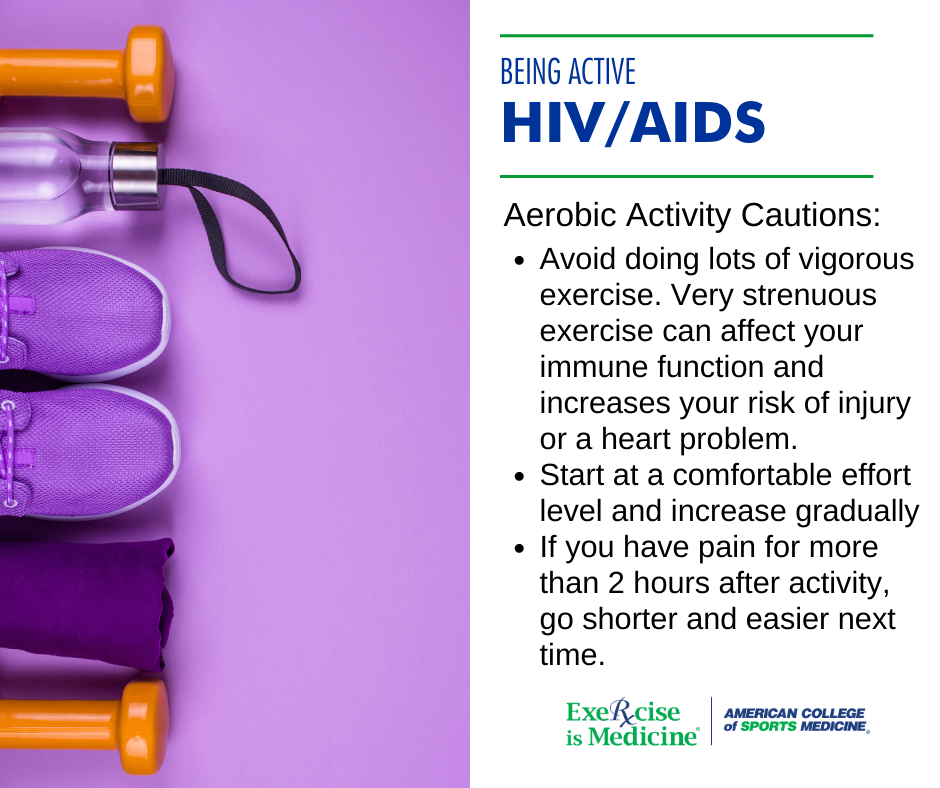1 Δεκεμβρίου 2020, Being Active When You Have HIV/AIDS - American College of Sports Medicine
 Staying active is important for people living with human immunodeficiency virus, or HIV. Aerobic activity increases your heart rate and breathing, and can help to alleviate some side effects of antiretroviral drugs. Build up to doing at least 150 minutes a week of moderate-intensity activity (like a brisk walk, light bike, water exercise or dancing).
Staying active is important for people living with human immunodeficiency virus, or HIV. Aerobic activity increases your heart rate and breathing, and can help to alleviate some side effects of antiretroviral drugs. Build up to doing at least 150 minutes a week of moderate-intensity activity (like a brisk walk, light bike, water exercise or dancing).
Do you want to feel better, move better and sleep better? Experts now say that any physical activity counts toward better health – even just a few minutes!
Staying active is important for people living with human immunodeficiency virus, or HIV. A welldesigned physical activity program can help make your HIV treatment more effective and give you more energy. There is no evidence that regular moderate exercise suppresses the immune system. Strength training is very important for people with HIV because it can help slow down the loss of muscle or bone sometimes caused by the virus or HIV medications.
Certain antiretroviral (ART) drugs increase your risk of developing health conditions such as unhealthy cholesterol, changes in body fat (how much and where it sits), type 2 diabetes, heart problems or weak bones. Both aerobic activity and strength training improve these health problems. If you are an adult with HIV who is responding well to treatment, being active is both safe and essential.
Learn more about being active with HIV/AIDS

